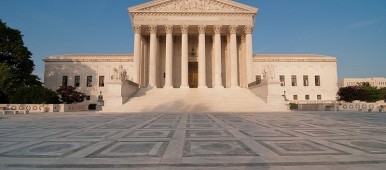
- Mediation
- Arbitration
- Court Neutrals
- Online Dispute Resolution
- Technology
- Court Decisions
- More
- Legislation
- Healthcare
- Guest Posts
- John DeGroote
- John C. Fleming
- Rick Freeman
- Professor Peter Friedman
- Honorable W. Royal Furgeson, Jr.
- James M. Gaitis
- Laura A. Kaster
- Professor John Lande
- Philip J. Loree, Jr.
- Michael McIlwrath
- F. Peter Phillips
- Professor Alan Scott Rau
- Professor Thomas J. Stipanowich
- Professor S.I. Strong
- Richard Webb
- Glen M. Wilkerson
- International arbitration
- Regulation
- Sports and Entertainment
- We’re Back!!!!Well, it’s been a while since we published and that is about to change. Since I spent much of last year becoming
 JAMS Welcomes Karl Bayer to its Panel of NeutralsJAMS, the world’s largest private alternative dispute resolution (ADR) provider, is pleased to announce that Karl Bayer
JAMS Welcomes Karl Bayer to its Panel of NeutralsJAMS, the world’s largest private alternative dispute resolution (ADR) provider, is pleased to announce that Karl Bayer Class Action Waivers in Arbitration Agreements: The Twenty-First Century Arbitration Battleground and Implications for the EU CountriesLinda S. Mullenix, Morris & Rita Atlas Chair in Advocacy at the University of Texas School of Law, has written “Class Ac
Class Action Waivers in Arbitration Agreements: The Twenty-First Century Arbitration Battleground and Implications for the EU CountriesLinda S. Mullenix, Morris & Rita Atlas Chair in Advocacy at the University of Texas School of Law, has written “Class Ac Picking the Proper Technological Tool for Problem-Solving in ArbitrationProfessor Amy J. Schmitz, John Deaver Drinko-Baker & Hostetler Chair in Law and Co-Director of the Translational Data An
Picking the Proper Technological Tool for Problem-Solving in ArbitrationProfessor Amy J. Schmitz, John Deaver Drinko-Baker & Hostetler Chair in Law and Co-Director of the Translational Data An
Recent Posts
SCOTX Offers Significant Guidance Regarding Discovery of ESI
The Supreme Court of Texas has issued a significant decision related to the discovery of electronically stored information (“ESI”).
Continue reading...Fifth Circuit Holds Payday Lender Waived Right to Arbitration
In a 2-1 decision, the nation’s Fifth Circuit Court of Appeals has ruled a payday loan lending company that sought criminal charges against customers who failed to repay their loans waived its right to arbitration by substantially invoking the judicial process.
Continue reading...U.S. Supreme Court Denies Certiorari in Texas Arbitration Case
On Monday, the United States Supreme Court denied certiorari in Parallel Networks, Inc. v. Jenner & Block, LLP, No. 16-1271.
Continue reading...SCOTUS Overturns Kentucky Supreme Court in Nursing Home Arbitration Case
The Supreme Court of the United States has reversed the Kentucky Supreme Court’s decision in a nursing home arbitration dispute.
Continue reading...Arbitration
Last week, the Eastern District of Texas issued a preliminary injunction over a National Football League (“NFL”) player’s six-game suspension.
Continue reading...Mediation
By W. Reed Leverton In August, 2009 attendees of the annual Texas Judicial Conference were surveyed regarding their attitudes as to alternative dispute resolution processes, with a particular emphasis on mediation and arbitration. The survey was prepared by members of the Alternative Dispute Resolution Section Council and undertaken under the Council’s direction. 1,547 state judges (trial and appellate) were invited to this year’s conference, 566 of whom attended. Each of the judges who came to the conference was asked to complete the survey, which was comprised of 12 questions, several with multiple sub-parts (see example below). The questions ranged from asking for basic information such as length of service on the bench and subject matter jurisdiction to multi-part Likert Scale questions eliciting the judges’ opinions as to the effectiveness and other qualitative aspects of ADR processes. The judges were also asked as to their opinions regarding subjects such as appropriate training, experience and roles for mediators and arbitrators. The respondents included trial court and appellate judges, with an average of 12 years on the bench. 89 of the 566 judges returned completed surveys, which represents 15.7% of conference attendees and 5.8% of all state judges eligible to attend the conference. What follows is a brief summary of the findings. While further analysis will be necessary to develop more specific conclusions, it can be generally said that Texas judges are well aware of the various non-judicial processes available to litigants (especially mediation and arbitration), and further, that there is general acceptance within the Texas judiciary of the use of ADR modalities. Mediation The respondents reported that mediation is often used in their respective counties and were of the opinion that it’s an effective way to manage their dockets. The judges were somewhat in agreement with the proposition that all civil and family law cases should be referred to mediation, and there was strong disagreement with the statement that mediation usurps the role of the judiciary. A few of the judges reported some agreement with the idea that mediation can threaten the rule of law in that participants can reach outcomes not otherwise available in court. Generally, however, the majority of the respondents did not feel that mediation threatens rule of law. With respect to court-referred mediations, 25% were done so by virtue of a local rule and 42% were by court rule. A significant number of judges also considered referrals on a case-by-case basis (50%) or on motion of the parties (53%). Only 7% of the judges reported that they do not refer their cases to mediation. 3% of the judges reported that they never grant an objection to a mediation referral order, 43% do so on a showing of extraordinarily good cause, 50% on a showing of good cause and 3% on motion of either party without a showing of good cause. The respondents generally disagreed with the following statement: mediation is a success only if an agreement is reached during the mediation itself. There was moderate agreement with the idea that mediators should provide participants with the mediator’s opinions of possible trial outcomes, while only slight agreement as to mediators opining as to probable outcomes. There was also moderate agreement with the proposition that participants derived more satisfaction with mediated settlements (as opposed to going to court) since they had more control over the outcome of their dispute. 90% of the judges thought that mediators should be required to have the same amount of training currently required to receive court-referred cases, while 5% responded that more training should be required. 3% thought that there should be no training requirements as a prerequisite to receiving court-referred mediations. Additionally, and with respect to court referred mediations only, 12.5% of the judges thought that membership in the Texas Mediator Credentialing Association should be required and 16% reported that some specialized training should be required based upon the facts of the case. Finally, and significantly, 32% of the judges felt that mediators handling court annexed cases should also be licensed Texas attorneys. Arbitration The respondents reported that the use of arbitration in their counties ranked between used and, sometimes and rarely used, and while some judges felt that arbitration was an effective docket management tool, it did not score nearly as well in that category as did mediation or settlement conferences. There was slight agreement that arbitrators are more predictable than juries as well as with the proposition that, generally, arbitrations cost less than jury trials. There was also some agreement with the statements that arbitration threatens the rule of law in that sometimes arbitrators can make awards not available in the courts and that arbitration usurps the role of the judiciary. All of the respondents were of the opinion that arbitrators should have some formal training and/or other qualifications. 55% opined that arbitrators should be licensed Texas attorneys, 60%thought that arbitrators should have formal training and 47% responded that they should have specialized training or background in the subject matter of the dispute to be arbitrated. The following are examples of the survey’s Likert Scale questions along with average response values: Please evaluate the following statements: 1 = strongly disagree; 2 = disagree; 3 = no opinion / neutral; 4 = agree; 5 = strongly agree A. Court-ordered mediation is an effective means to manage my docket. (Average response: 4.31) B. Absent a showing of good cause to the contrary, all civil cases (non-family) should be referred to mediation. (Average response: 3.72) C. Absent a showing of good cause to the contrary, all family cases should be referred to mediation. (Average response: 3.75) D. Mediation usurps the role of the judiciary. (Average response: > 1.13) E. Mediation threatens the rule of law in that parties can reach settlement agreements that contain outcomes not available if their disputes are submitted to judges or juries for final disposition. (Average response: 1.73) F. When appropriate, mediators should tell the parties what the possible outcomes are on specific issues, verdict amounts, or even the entire case […]
Continue reading...Healthcare Disputes
Legal Research
About Disputing
Disputing is published by Karl Bayer, a dispute resolution expert based in Austin, Texas. Articles published on Disputing aim to provide original insight and commentary around issues related to arbitration, mediation and the alternative dispute resolution industry.
To learn more about Karl and his team, or to schedule a mediation or arbitration with Karl’s live scheduling calendar, visit www.karlbayer.com.












